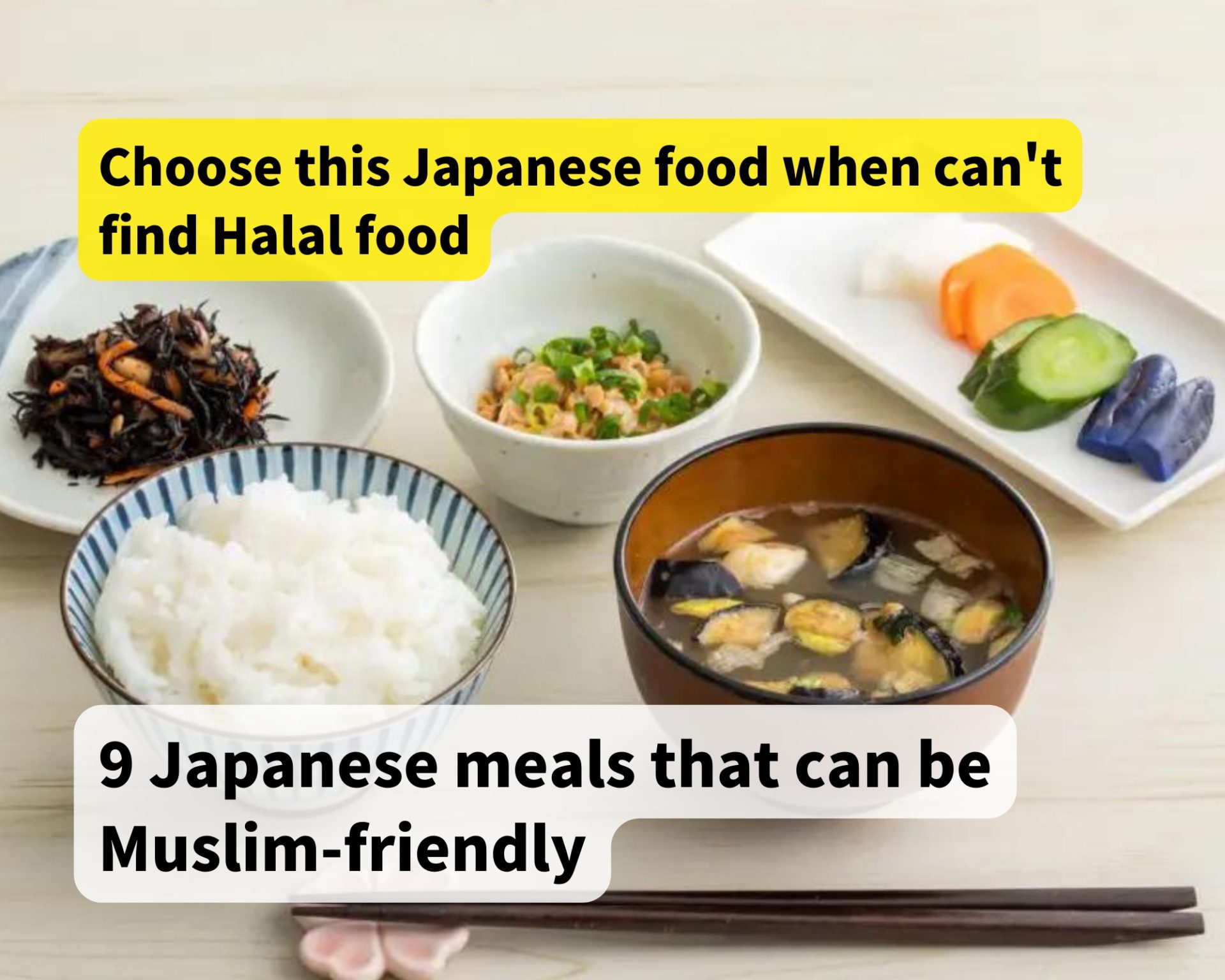What if Muslims can’t find Halal restaurant?
Although the number of restaurants that serve Halal meals is increasing, Japan is still struggling with welcoming Muslim travelers, especially in the countryside. Many of you should be dreaming of traveling to a countryside where you can enjoy rich and unique culture without being worried about Halal food.
In this article, we are going to give you some tips on what Japanese meals you should choose when you cannot find a Halal restaurant. These Japanese meals are basically seafood that do not contain pork, other types of meats or alcoholic seasonings.
9 Japanese meals that can be Muslim-friendly
- Tempura (天ぷら)
- Fried Horse mackerel (アジフライ)
- Fried Oyster (カキフライ)
- Meunier (ムニエル)
- Robata yaki (炉端焼き)
- Sashimi (刺身)
- Fish pot (鍋)
- Fried Prawn (エビフライ)
- Grilled fish (焼き魚)
Tempura (天ぷら)
Tempura is one of the traditional Japanese cuisines that everyone knows, which can be Muslim-friendly! Using a light flour and fried in the oil, Tempura is always served crispy.
In a nice Tempura restaurant, a chef will fry seasonal vegetables, root vegetables, mushroom, pumpkin and shrimp, right in front of you. Tempura usually comes with Dashi broth to dip, however, this broth may contain soy sauce or Mirin, so if you would like to avoid liquid seasoning that may contain residual alcohol, ask for salt instead.
However, avoid Tendon, a rice bowl style, as they put seasonings over Tempura and this contains alcoholic seasonings.
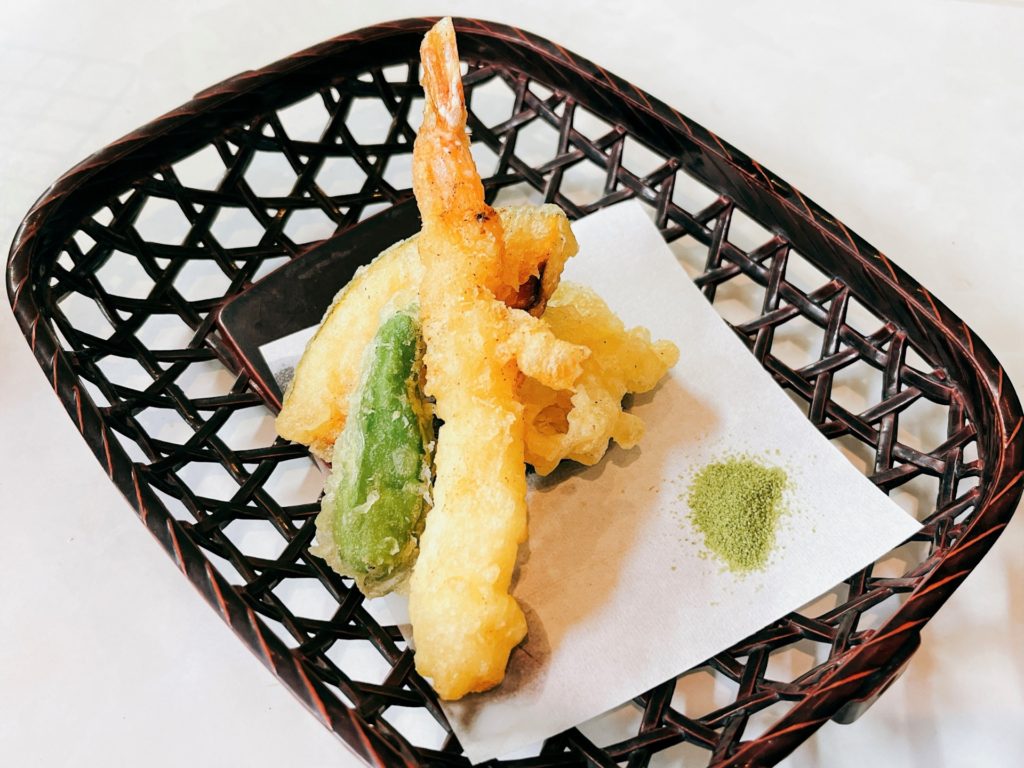
Fried Horse mackerel (アジフライ)
Horse mackerel is a fish that we can catch anywhere in Japan, and it is available at many canteens. When fresh horse mackerel is cooked right after it is caught, the taste is so amazing.
It usually comes with a seasoning like Tartar sauce or Japanese sauce. As introduced, Tartar sauce could contain a small portion of alcohol in their mayonnaise and vinegar, and Japanese sauce could have alcohol and animal essence.
Tartar sauce may be acceptable for most of the Muslims; however, Japanese sauce should be avoided to be on a safer side.
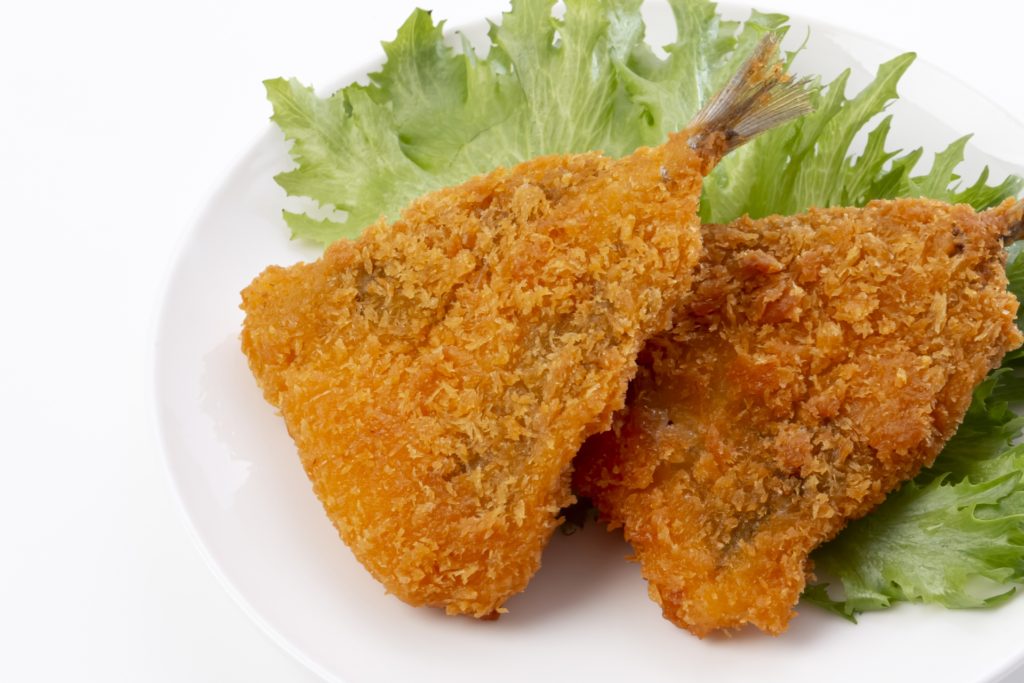
Fried Oyster (カキフライ)
Fried Oyster is another favorite Japanese food, which can be Muslim-friendly. Oyster is in season during winter, so our recommendation is to enjoy during that time.
Even though you are not good at eating raw oysters, the fried oyster tastes totally different, so you can try to bite one. It comes with Tartar sauce or Japanese sauce, but you can ask for a lemon wedge instead.
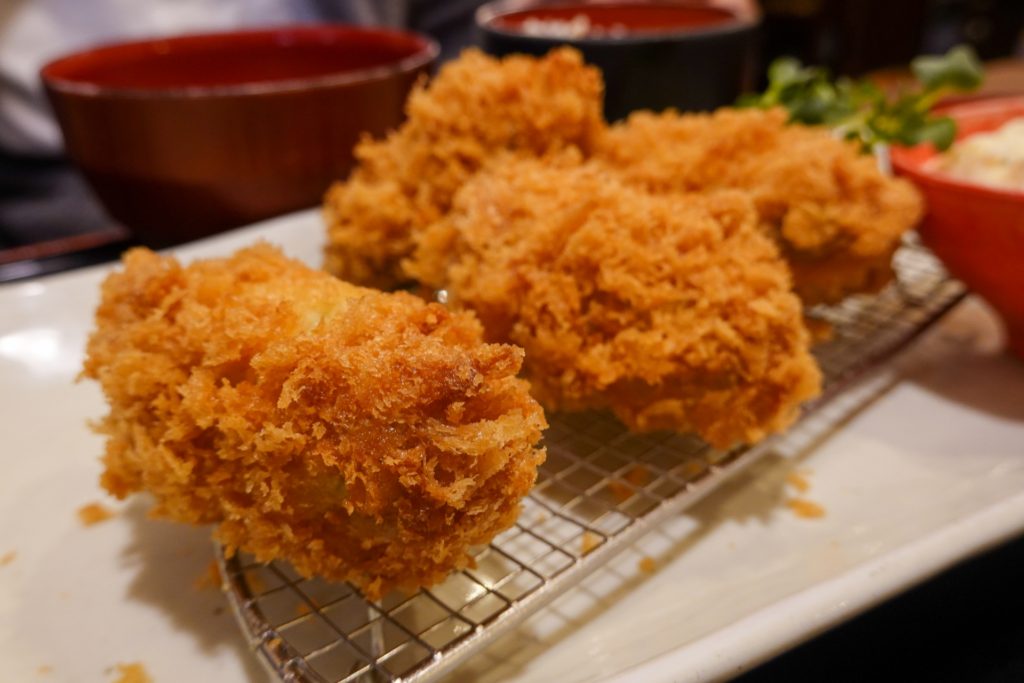
Meunier (ムニエル)
Meunier is a French way of cooking, but now it is part of Japanese food culture. The menu usually comes with fish fillet, like cod, flatfish or salmon.
They are slightly salted and floured, then grilled with butter. In Japan, we serve with Tartar sauce, but you can try with some soy sauce or salt if you like. It is a Muslim-friendly menu that you can enjoy tasty Japanese fish.
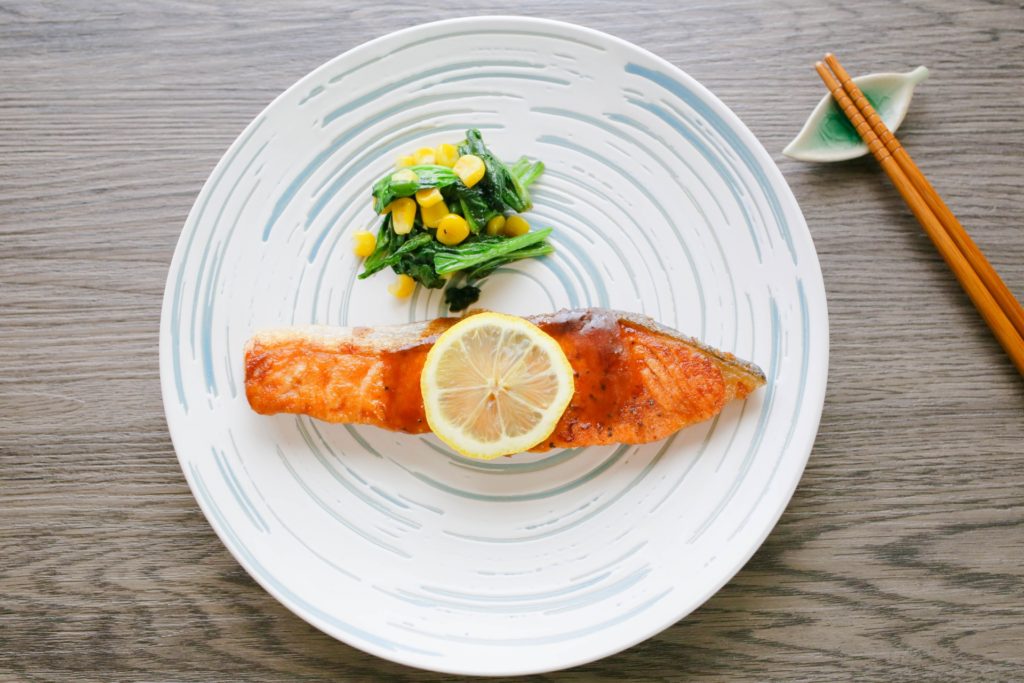
Robata yaki (炉端焼き)
Robata yaki literally means BBQ at traditional Japanese fireplace. It is a BBQ but uses seafood instead of meat, along with vegetables.
In a traditional Robata yaki restaurant, a chef grills the seafood and vegetables, and he/she will serve them to customers using a long tong. Now this style is not seen very often, but the food itself is available. Some restaurants serve meat for Robata yaki, so carefully check what they are serving.
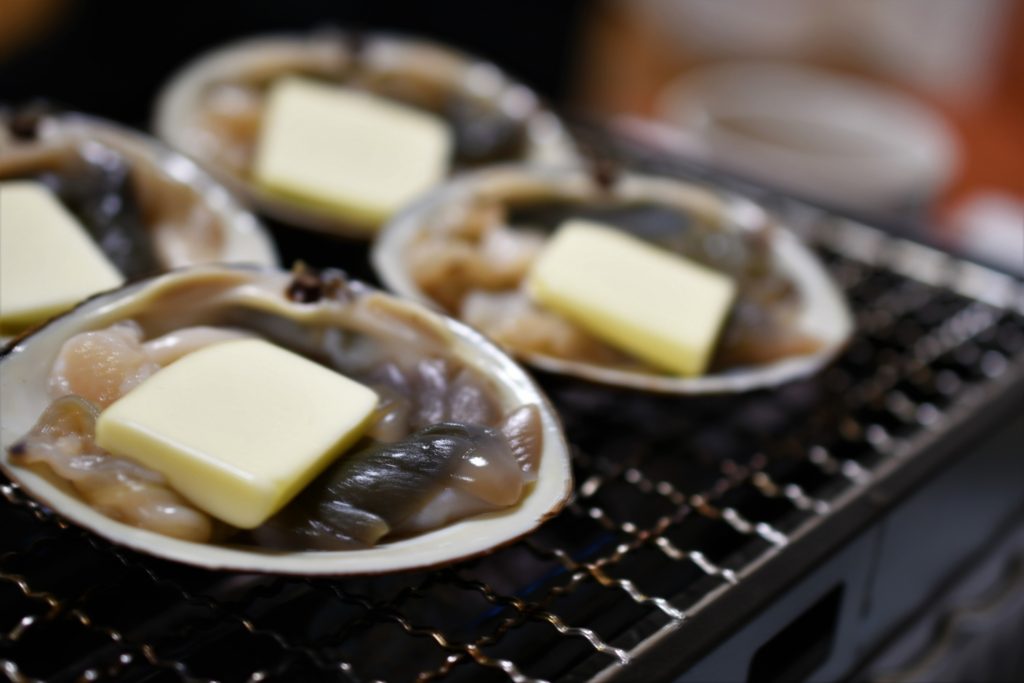
Sashimi (刺身)
Sashimi is another Muslim-friendly meal! Well, you may wonder what about Sushi? As introduced in the article things you have to know about Sushi, unfortunately Sushi is not a genuine Halal meal.
Instead, Sashimi can be a complete Halal meal if you bring your own Halal soy sauce, which can be easily obtained at Japanese supermarket.
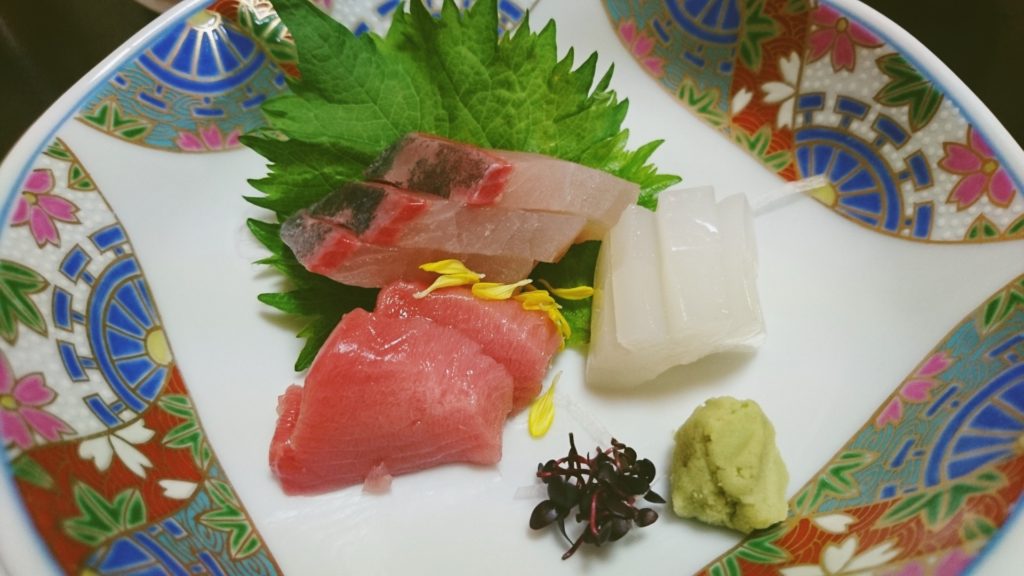
Fish pot (鍋)
We have various hot pots in Japan. It is a very easy recipe, as we just have to cut the vegetables and meat as we like and stew it with hot pot stocks, which are ready to be used in a plastic bag.
Although most of the hot pots have meats, there are some fish hot pots that do not have any meat, even Dashi broth is made from seaweed or fish. This is to enjoy the delicate flavor of fish, which is the reason why it can be a Muslim-friendly meal!
Famous fish pots are:
Fugu blowfish hotpot from Osaka, which can be expensive but luxurious.
Ishikari hotpot from Hokkaido, with salmon and Miso paste
Buri yellowtail Shabu Shabu
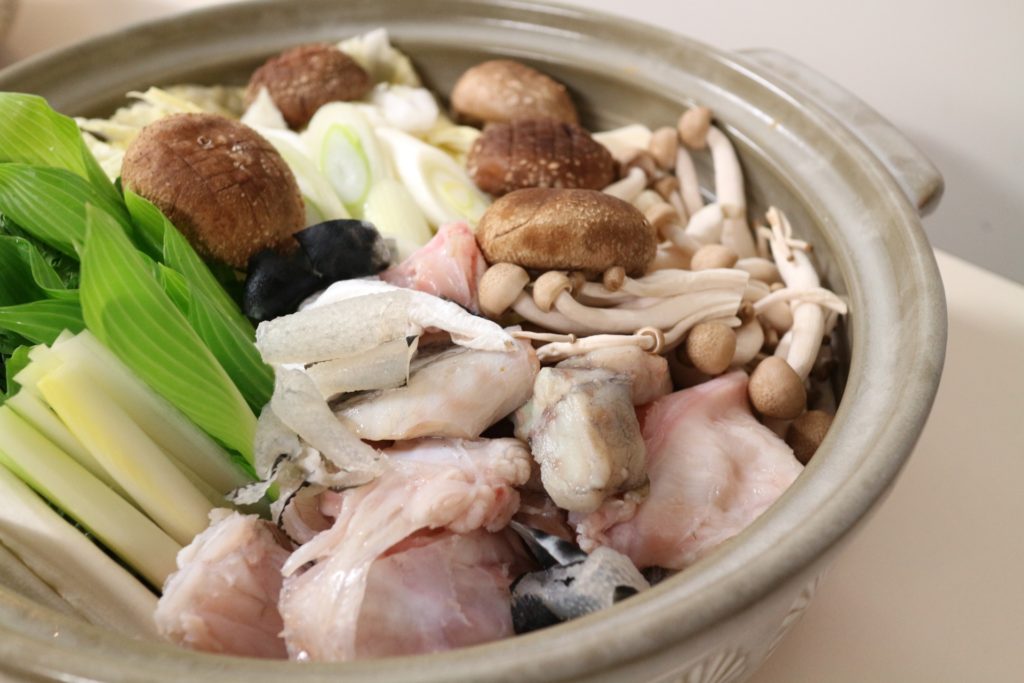
Fried Prawn (エビフライ)
All Japanese kids love this dish! Prawns are fried in oil with bread crumbles and served with Tartar sauce or Japanese sauce. These sauces should be avoided if you want to minimize the risk of residual alcohol, but don’t worry, it usually has a lemon wedge on the plate so you can use this instead.

Grilled fish (焼き魚)
This may be the most typical Japanese meal, grilled fish! You may see grilled fish probably in the breakfast, but it can be lunch or dinner.
You should already know that the dish is Halal, however, please check if the grilled fish is fresh or dried. This is because sometimes we put alcoholic seasonings over the surface of the dried fish, which makes the dish not a complete Halal.
Also, please check the soy sauce as they might contain alcohol.
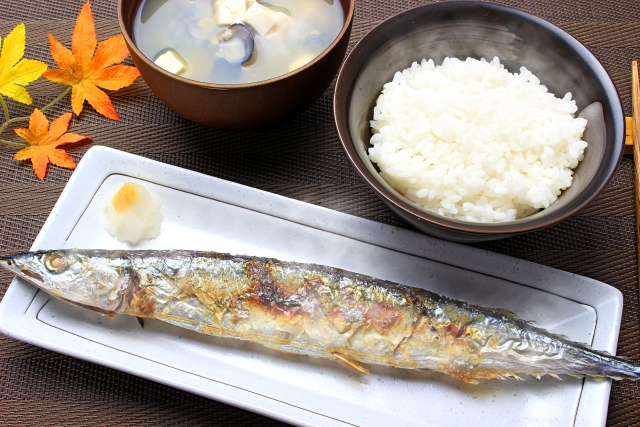
Enjoy Japanese food!
We know that you want to try Japanese food if you are traveling to Japan, not Indian/Pakistani or Vegetarian food. Unfortunately, as the meat is not religiously processed, the food that has meat inside is all haram, but still there are some fish dishes that can be very enjoyable.
All the fried fish meals are Halal, but please be careful that they may be fried along with other ingredients, such as pork or chicken! Before making an order, please check with the restaurant with the following sentence.
Do you cook any meat in the same oil? 同じ油で肉を調理していますか?
If you want to try Halal Japanese meals, we can help you get one anywhere you are traveling to, please feel free to contact us.
Enjoy your Japanese gourmet!
The information we have provided is based on a general recipe, and please understand that each restaurant may have different recipes. Please confirm if the food is halal or not by yourself.

